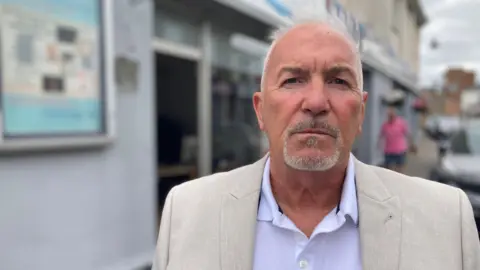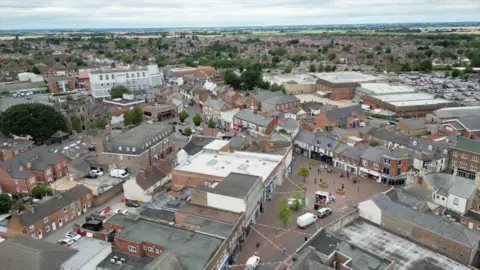Business owners refuse BID payment amid dispute
 BBC
BBCA group of businesses in Spalding say they are determined not to pay towards the town's Business Improvement District (BID) despite the threat of legal action.
Spalding BID was established after a ballot of local businesses which was won by a single vote in July 2024.
However, a number of traders have refused to pay the compulsory charge, saying the vote was invalid because some businesses had not received a ballot paper.
South Holland District Council said it was confident the ballot was carried out in a correct and proper manner.
The cost of the levy to each business is calculated as a percentage of its rateable value, meaning the larger the business, the more it pays.
The BID plans to use the money to fund projects to improve the town centre and attract more shoppers to the town.
Photographer Julian Wheeler is one of a group of small business owners opposed to the levy.
He, along with 45 others who did not pay, was found liable for the charge in a hearing at Boston Magistrates' Court on 30 June.

Mr Wheeler said he would continue to refuse to pay the charge and hoped to challenge the legality of the vote which established the BID.
"We have identified at least two infractions of the BID regulations, on the part of South Holland District Council, and that brings into question the legality of the BID being enacted."
Beautician Macie Harman, who owns Macie's Boo-tique was also summoned to appear in court for non-payment.
She said she would now pay the levy to avoid incurring further costs, but would continue to fight to have to the BID scrapped.
"I didn't receive a ballot so I don't think it's fair that I should have to pay for something I didn't have a choice about," she said.

A South Holland District Council spokesperson said: "We have every confidence that the BID ballot and levy collection have been carried out in the correct and proper manner, working in line with national guidelines to ensure a fair and transparent process, with clear and documented communication throughout.
"The ballot was managed to the same high level as any other election, with verified data being provided to a recognised electoral services provider, and the council's returning officer overseeing the process with the usual checks, proofing and sign-off taking place.
"The collection of the levy on behalf of the BID has been carried out in the same manner as it would be with council tax and all other council managed collection processes, and all recovery actions undertaken have been done in line with the relevant national regulations."
Listen to highlights from Lincolnshire on BBC Sounds, watch the latest episode of Look North or tell us about a story you think we should be covering here.
Click here, to download the BBC News app from the App Store for iPhone and iPad.
Click here, to download the BBC News app from Google Play for Android devices.
